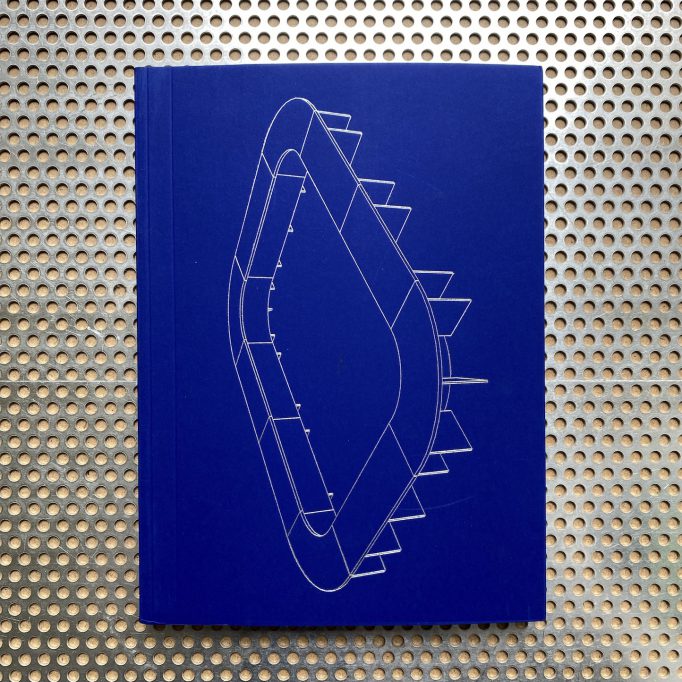7.09 from 6.30pm: Ho Rui An presenting Tables | Factories, in conversation with Nut Srisuwan @ Motto Berlin
Posted in Events, Motto Berlin event, politics on September 7th, 2022Tags: Book presentation, events, Ho Rui An, motto berlin, Nut Srisuwan, Tables | Factories

Please join us for the presentation of Tables | Factories with author and artist Ho Rui An in conversation with Nut Srisuwan
Wednesday 7 September
from 6.30pm
Motto Berlin
Salitzer Str. 68 (im Hinterhof)
10997 Berlin
//
Ho Rui An is an artist and writer working at the intersections of contemporary art, cinema, performance and theory. Working primarily across the mediums of lecture, essay and film, he probes into the ways by which images are produced, circulate and disappear within contexts of globalism and governance. He has presented projects at the Bangkok Art Biennale; Asian Art Biennial; Gwangju Biennale; Jakarta Biennale; Sharjah Biennial; Kochi-Muziris Biennale; Kunsthalle Wien; Haus der Kulturen der Welt, Berlin; Van Abbemuseum, Eindhoven; NTU Centre for Contemporary Art Singapore; and Para Site, Hong Kong. In 2019, he was awarded the International Film Critics’ (FIPRESCI) Prize at the International Short Film Festival Oberhausen, Germany. In 2018, he was a fellow of the DAAD Artists-in-Berlin Program.
Nut Srisuwan is an independent researcher and curator based in Bangkok and Leipzig. His research examines the interrelations between subjects in transnational contexts, such as national identities, politics and migratory movements. As a co-founder of the artistic and curatorial collective “Charoen Contemporaries”, he also works together with other practitioners in finding new models for the art ecosystem in Thailand.
//
Tables | Factories
Ho Rui An
Published by BANGKOK CITYCITY GALLERY
The process of preparing this book began with looking at photographs of large meeting tables around which Chinese and Singaporean public officials gathered during the many Chinese government study missions to Singapore throughout the 1990s. While such images might seem unremarkable today, the appearance of former revolutionaries of the Maoist era as sedentary technocrats marks the historic emergence of a distinct political imaginary in a time when “the economy” was displacing class struggle as the primary subject of governance in China.
It was at the table that these technocrats, having extricated themselves from the masses, devised the concept of the socialist market economy to frame the economic reforms that were launched by Deng Xiaoping in 1978. As they insisted on the compatibility of the market economy with the prevailing socialist social contract, the reformers articulated their turn towards the market as a decision informed not by the “invisible” manner through which the market allocates its resources, but by the assumed transparency of its information flows, which they believed would make visible what the party-state had been previously unable to see.
Yet, to the extent that this process of “seeking truth from facts”, as the reformers put it, is founded upon a set of separations—the party-state from the masses, information from ideology, the economic from the political—what ultimately underwrites the total visibility apparently provided by the table is the concealment of that which must not be allowed to appear as information in order for the logic of the market to obtain: the exploitation of labour.
It is on this basis that the factory can be construed as the table’s forgotten origin and impenetrable interior, and the gate that circumscribes the compound the limit of the market’s capacity for making things visible. Designed to spatially contain industrial labour and hide their exploitation from the public sphere, the factory gate is as close as the technocrat would get, as seen during the factory’s opening ceremony, to the world of labour under a capitalist mode of production. In thus proposing a convergence between tables and factories and examining their respective regimes of (in)visibility across the contexts of Singapore and Reform-era China, this collection of images and texts seeks to understand how the seemingly disparate worlds centred around these two objects in fact call forth each other to produce our deeply unsettled contemporary condition—one where the recognition that accrues to visibility has replaced freedom from exploitation as the most that the people can ever demand after the revolution’s untimely end.
Order the book here
